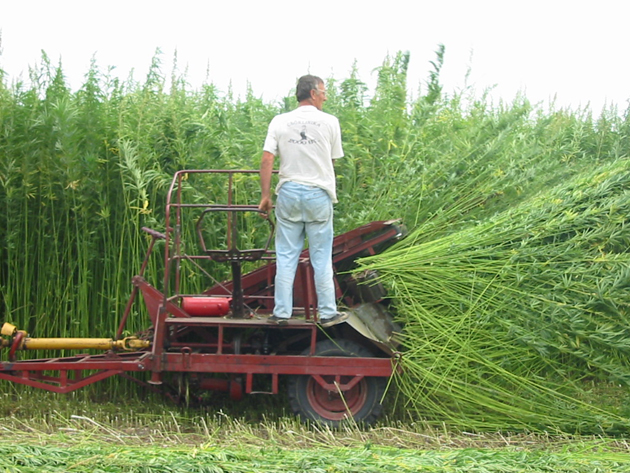Despite the ultimate failure of the Farm Bill Thursday afternoon, a milestone was made for the industrial hemp industry, which succeeded in passing an amendment vote that makes it legal to cultivate the crop for research purposes.
Videos by Rare
Overcoming intense lobbying efforts by the Drug Enforcement Administration, the bipartisan amendment, sponsored by Reps. Jared Polis (D-Colo.), Thomas Massie (R-Ky.) and Earl Blumenauer (D-Ore.), passed a House vote by 225-200.
The DEA’s arguments surrounded concerns that industrial hemp would be too difficult to differentiate between illegal marijuana.
The amendment would have allow colleges and universities to grow and cultivate industrial hemp for research purposes and would only be allowed in states where hemp cultivation is already legal. Industrial hemp has a wide array of uses, including, food, cosmetics, textiles, rope, composite fibers, and building materials.
“Let me be clear about something,” Rep. Jared Polis (D-Colo.) clarified on the House floor, “Hemp is not marijuana.”
“I’m very disappointed to hear the DEA is circulating talking points that claim that some how hemp could be used as marijuana,” he said.
According to Polis, the concentration levels specified in the amendment would make hemp impossible to use as a drug.
Growing industrial hemp, while not illegal, requires a DEA permit which are very difficult to obtain.
“Strictly speaking, the CSA [Controlled Substances Act] does not make Cannabis illegal; rather, it places the strictest controls on its production, making it illegal to grow the crop without a DEA permit,” a Congressional Research Service memo states.
While both hemp and marijuana come from the same Cannabis savita L. plant, they are of different varietals, and grown for distinctly different purposes.
“On the merits, this is a no-brainer. Industrial hemp is an important product,” Rep. Polis told The Huffington Post. “It’s perfectly legal, but currently we require that it be imported from other countries. Basically it’s taking jobs away from American producers.”
“Hemp is legal in many countries, including Canada, and is legal to import but not to grow in the United States. Nineteen states have passed pro-industrial hemp legislation, and nine have removed barriers to its production,” HuffPo reports.
Following the vote, Republican Congressman Thomas Massie, fond of tweeting hashtags that rhyme with his last name, tweeted the hashtag “#GRASSYWITHMASSIE.” Others began using the hashtag as well, with one Twitter user pointing out: “A sitting republican congressman just started a marijuana-themed hash tag about himself, without sarcasm.”
A recent poll by HuffPo/You Gov finds that most Americans, 54 percent, support the legalization of hemp. Proponents argue legalizing hemp would be a job boon.
It is often noted by proponents that industrial hemp was grown by many founding fathers, including George Washington and Thomas Jefferson.
In an internet video, industrial hemp lobbyist, Ben Droz, recalls a time when capitol security guard would not let him through the gate while carrying industrial hemp to show lawmakers.
After ten to fifteen minutes of talking and arguing with the guards, Droz was ultimately forced to hand over his hemp fiber, despite the fiber not being an illegal substance.
The farm bill failed later Thursday afternoon, after Nancy Pelosi was unable to deliver the expected votes from Democrats, who rejected the bill based on the $40 billion cut to the food stamp program known as SNAP.
Still, the win in the House is a sign that the tides and public perception may be shifting on industrial hemp.
Betsi Fores is a Content Editor for Rare. Follow her on Twitter @ejfores.




One Comment
Leave a ReplyOne Ping
Pingback:Hemp flag will fly over Capitol on Independence Day | Rare